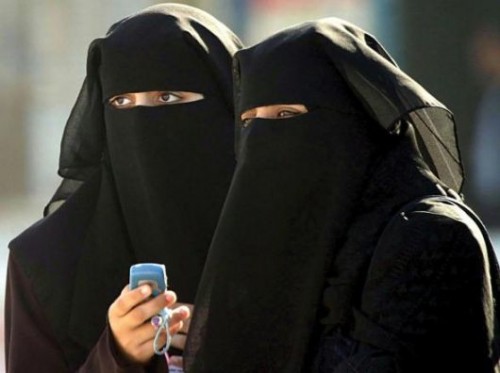
PRESS RELEASE: France – Partial Burka ban further evidence of French state racism

—————————————————–
Islamic Human Rights Commission
—————————————————–
PRESS RELEASE: France – Partial Burka ban further evidence of French state racism
Concerns that levels of anti-Muslim hatred will rise still further
The reported forthcoming recommendation to bar women who wear the so-called burka or face veil from entering public sector property, including hospitals and schools, or using public transport is further evidence of French state racism.
Islamic Human Rights Commission (IHRC) sees the findings of the French ‘Parliamentary Commission of Inquiry on the Burka and the Nikab’ as simply the latest in a line of racist policies and laws that target Muslims, and in particular Muslim women.
The findings of the report also mask the effects of the 2004 law banning head coverings in school. This has seen Muslim schoolgirls either abandon their right to free religious expression or their rights to education and work. However there are many documented cases of discrimination in other public and private sectors that has worsened since this ban. Reports by various NGOs [1] highlight cases where headscarfed women have been removed from their own wedding ceremonies, refused permission to enter their own bank to withdraw money, or denied service in shops. Other cases include signs and notices in doctors’ clinics stating that headscarfed women will not be attended to.
The Commission’s recommendation will simply legitimise further acts of racism and discrimination.
IHRC researcher and author of various reports on Hijab, Arzu Merali [2] said:
“Claims by some politicians and media in France that these moves are motivated by the perception that burka symbolises oppression against women are misleading. The ‘string affair’ in France a few years back, showed as much concern expressed by government figures on the trend of visible G-strings yet no legislation or policy was brought in to tackle this issue. It is clear that ethnicity and religion are more important factors in this decision than gender.”
For more information, interviews, contacts or copies of the reports mentioned below, please contact the Press Office on (+44) 20 8904 4222 or (+44) 7958 607474, email: info@ihrc.org .[ENDS]
Notes to editors:
[1] Local NGOs active in this field are Collectif Contre l’Islamophobie en France (CCIF), contact@islamophobie.net and Comité 15 Mars et Libertés (March 15 Freedom Committee)
[2] Please refer to the following IHRC reports:
Submission on France to the UN / UPR (Short report 4 pages)
Concerns over 15 March 2004 law, articles of the French constitution, the Conseil D’Etat ruling in 1994, and the anti-discrimination body HALDE. Islamic Human Rights Commission- FRANCE- February 2008
For Liberty (2009)
FRANCE: Concerns Regarding the Violation of CEDAW by the Banning of the Islamic Headscarf and other religious symbols in schools etc. (2008)
Hijab, Meaning, Identity, Otherization and Politics: British Muslim Women.
——————————————————————————————
The Islamic Human Rights Commission is an NGO in special consultative status with the United Nations Economic and Social Council.
Islamic Human Rights Commission
PO Box 598
Wembley
HA9 7XH
United Kingdom
Telephone (+44) 20 8904 4222
Fax (+44) 20 8904 5183
Email: info@ihrc.org
Web: www.ihrc.org
IHRC is an NGO in Special Consultative Status with the Economic and Social Council of the United Nations.
Islamic Human Rights Commission
PO Box 598
Wembley
HA9 7XH
United Kingdom
Telephone: (+44) 20 8904 4222
Email: info@ihrc.org
Web: www.ihrc.org
Twitter: @ihrc
Help us reach more people and raise more awareness by sharing this page
Featured Campaigns
Trending Posts


Gaza Genocide – Resources

Muslim States Must Act Now To Halt Gaza Genocide

United Friends and Family Campaign: A 25 Year Struggle for Justice.


